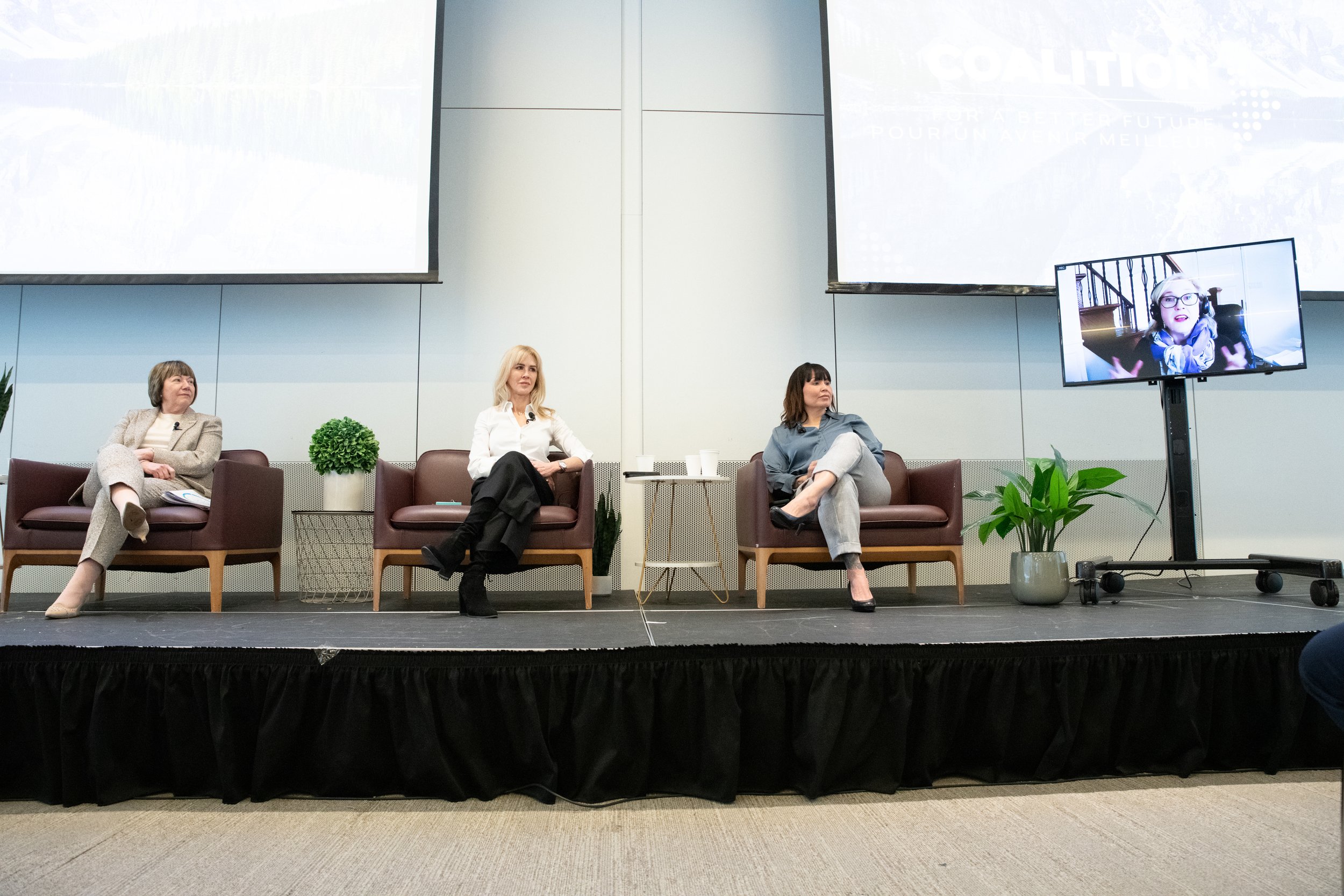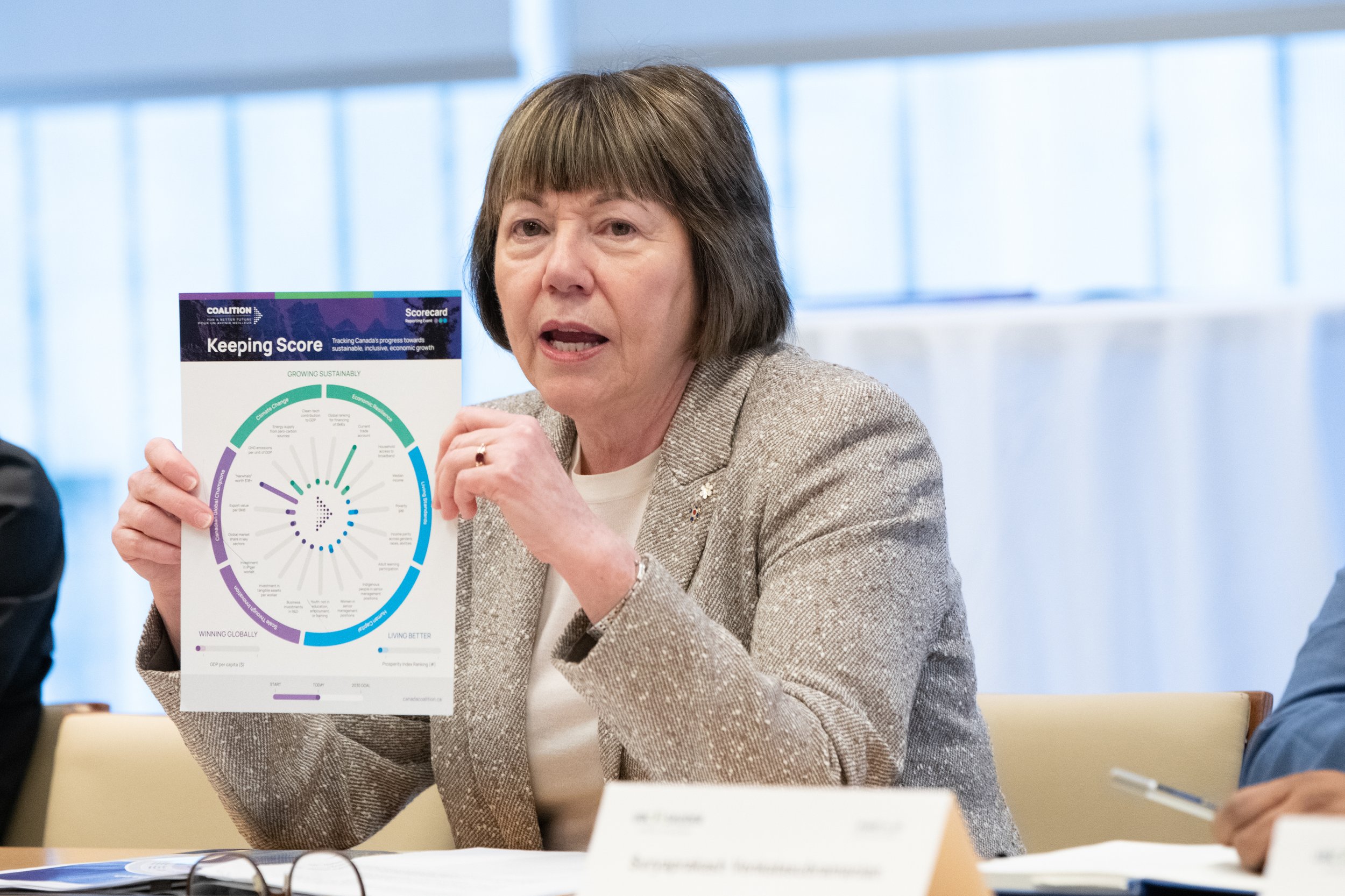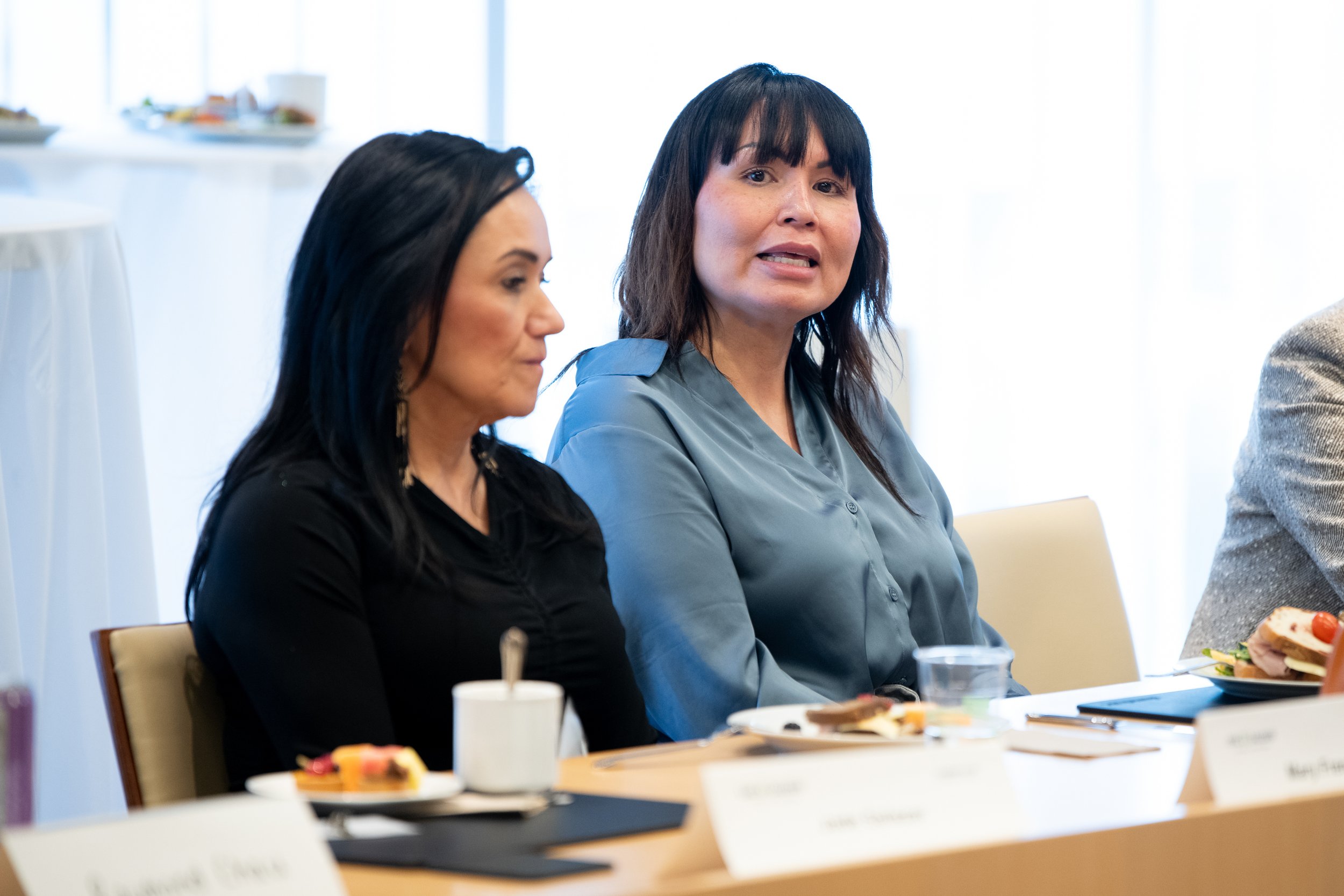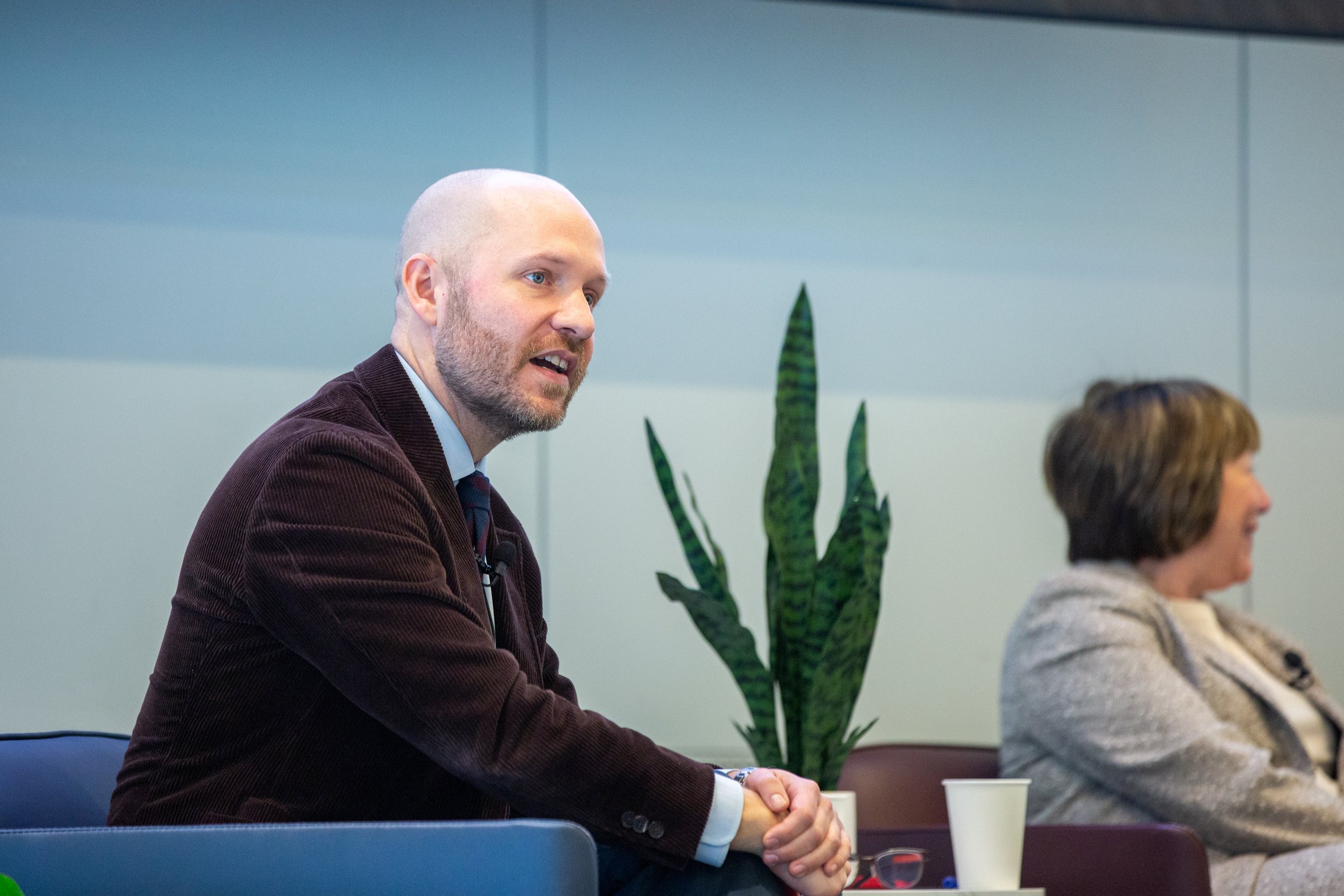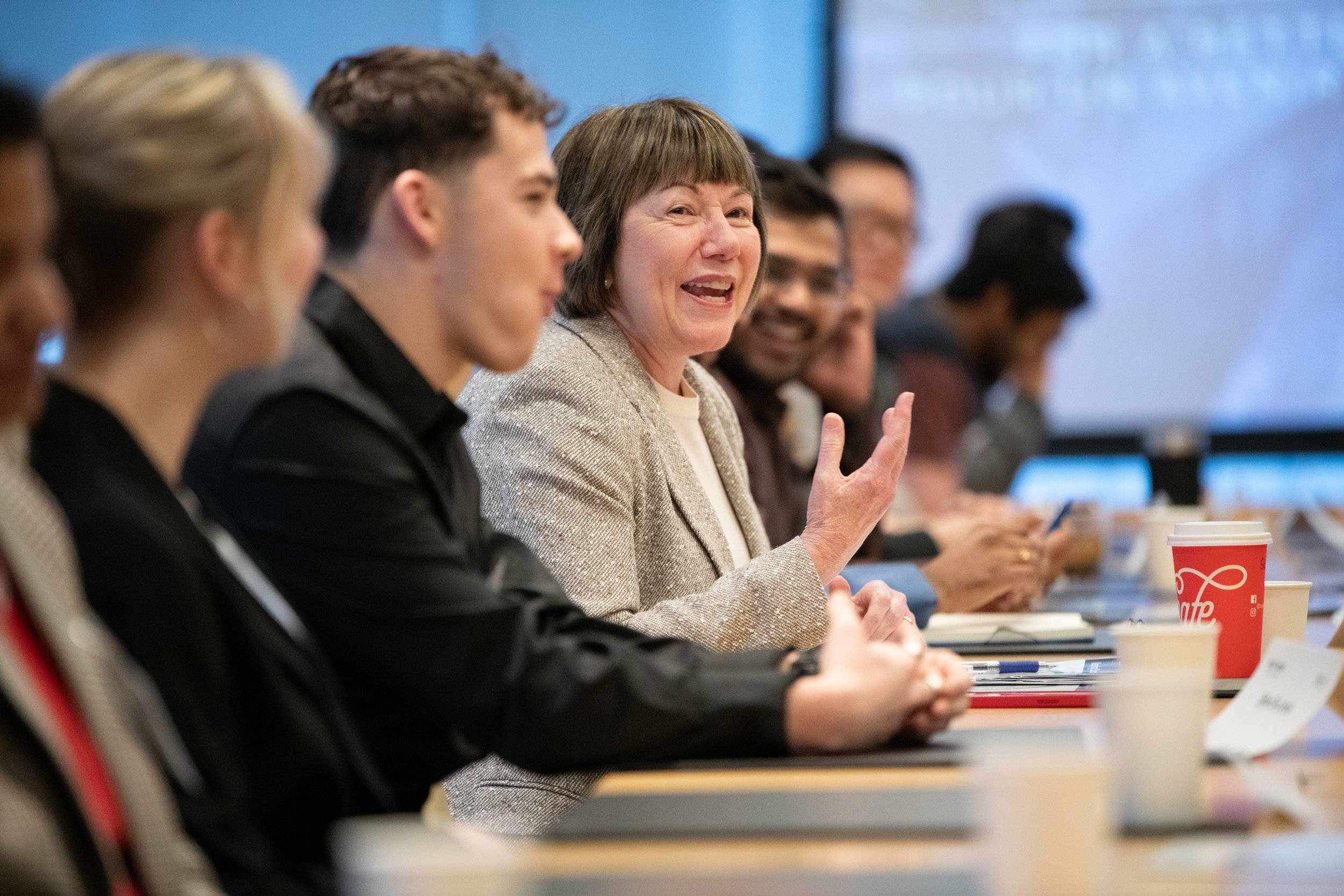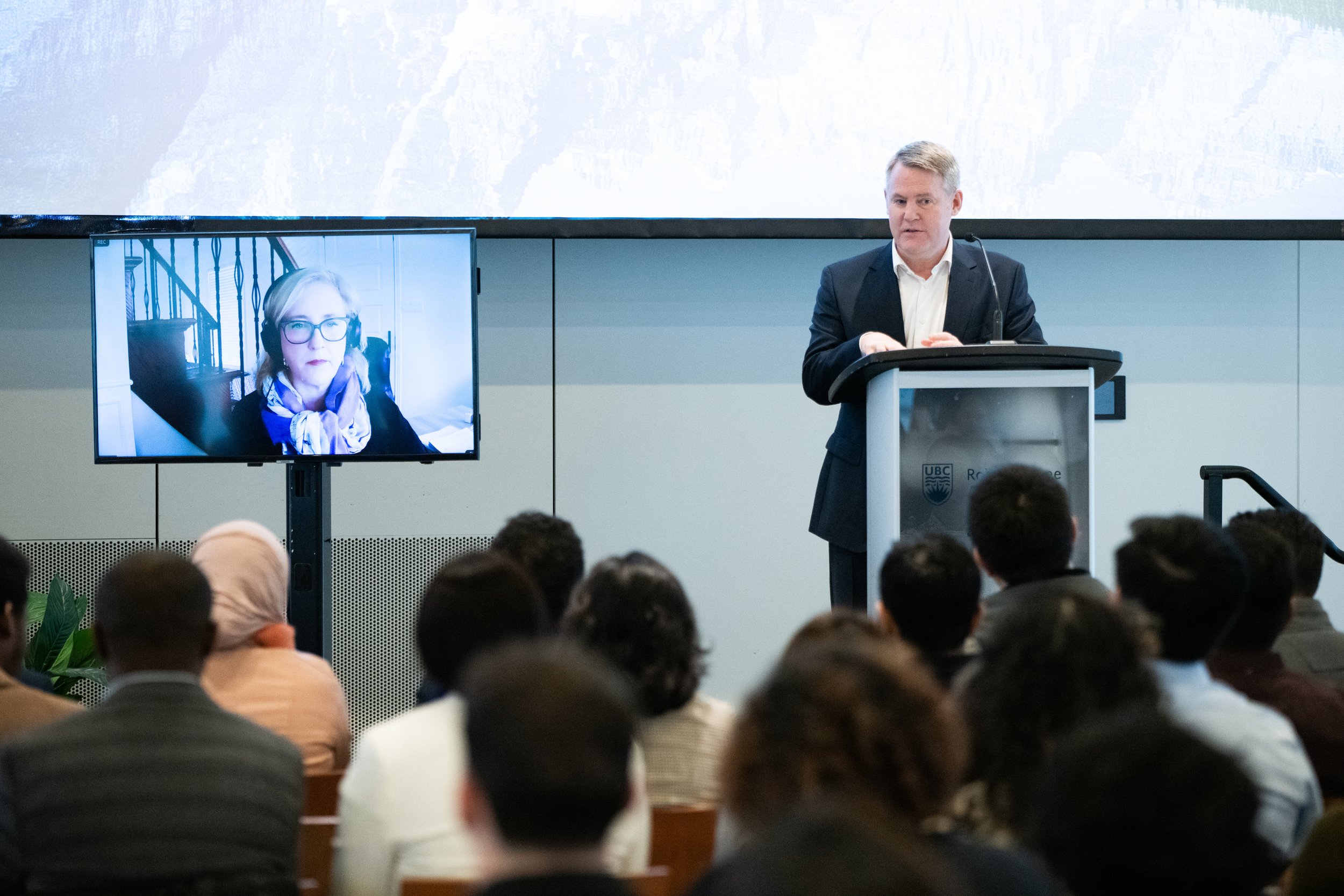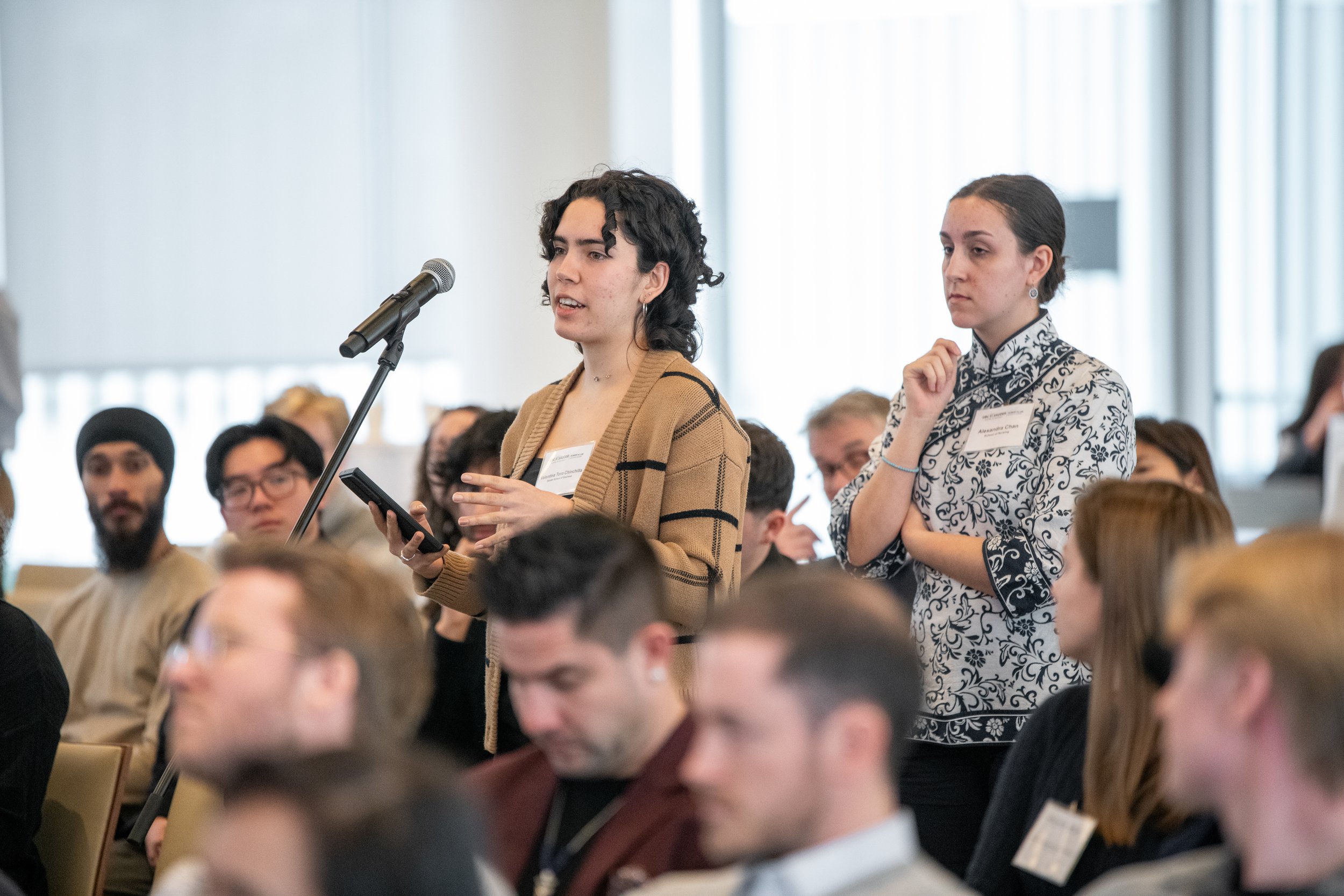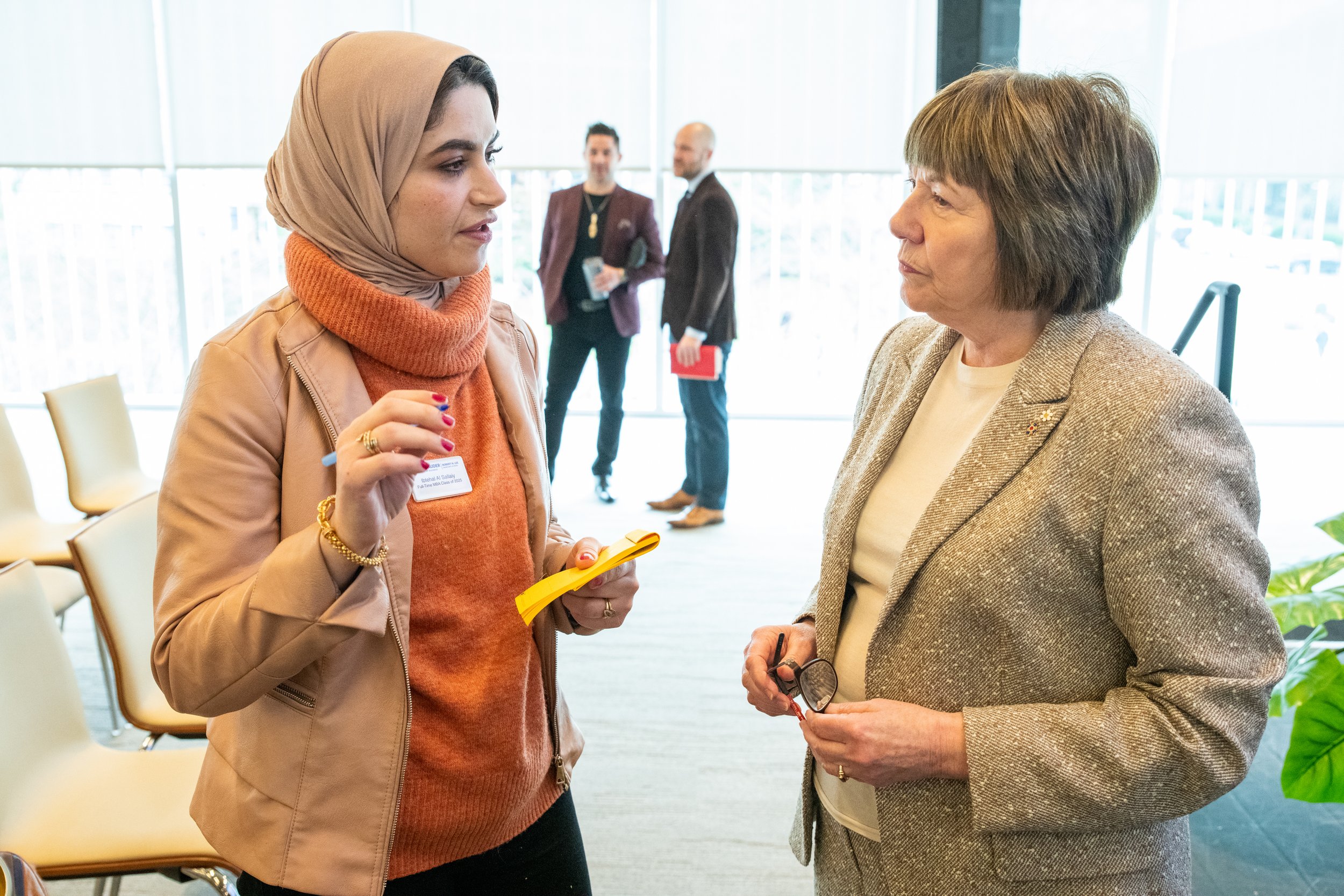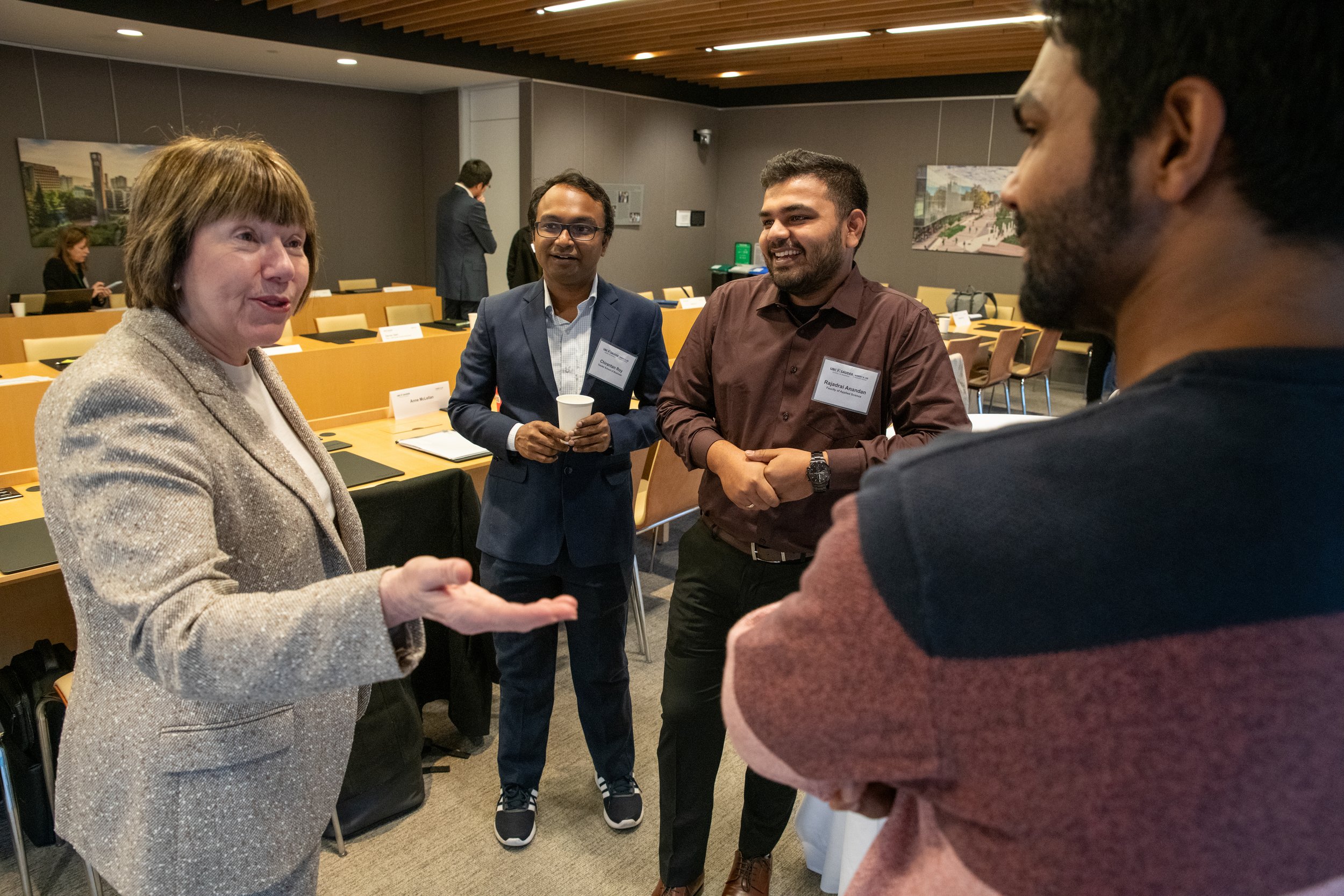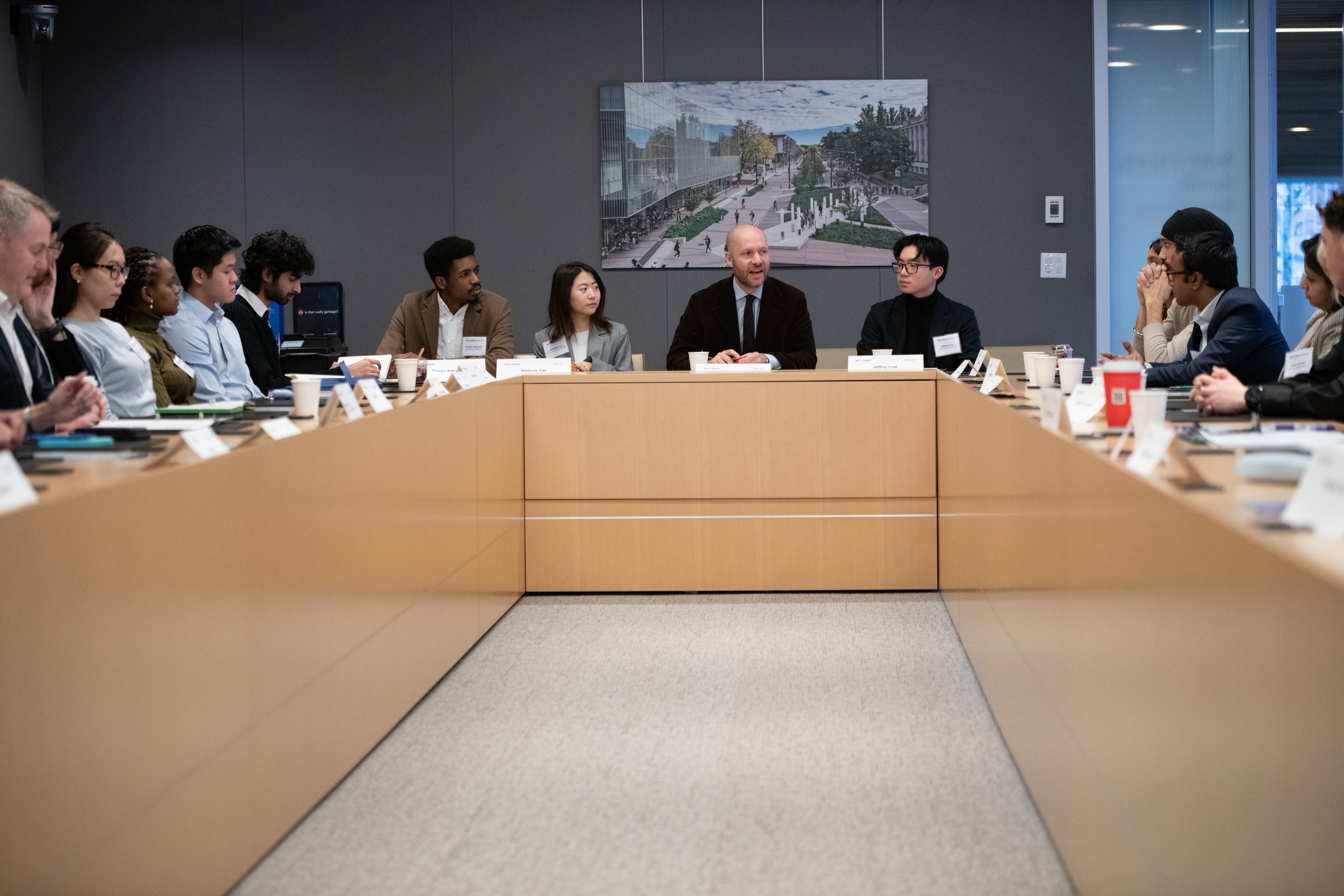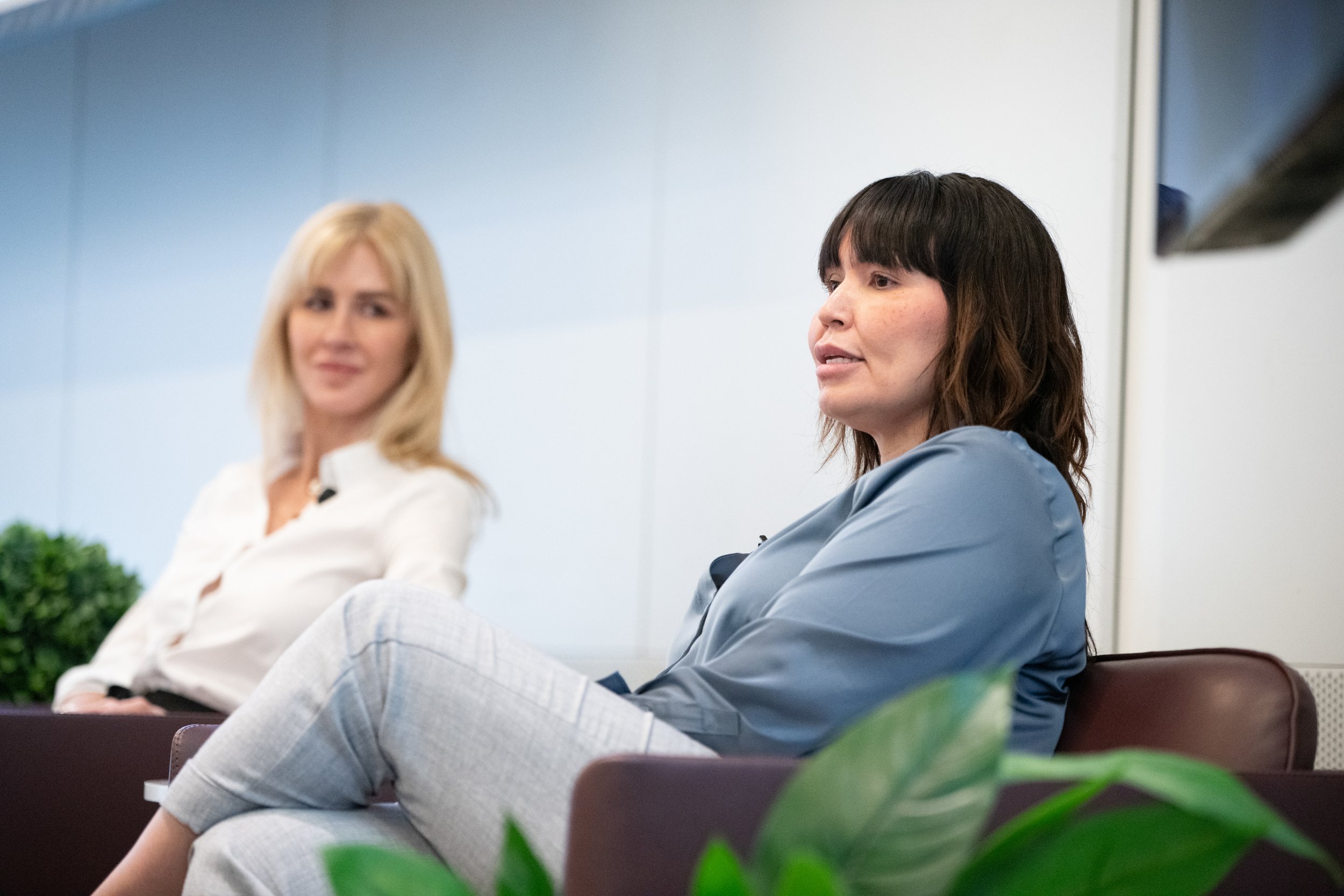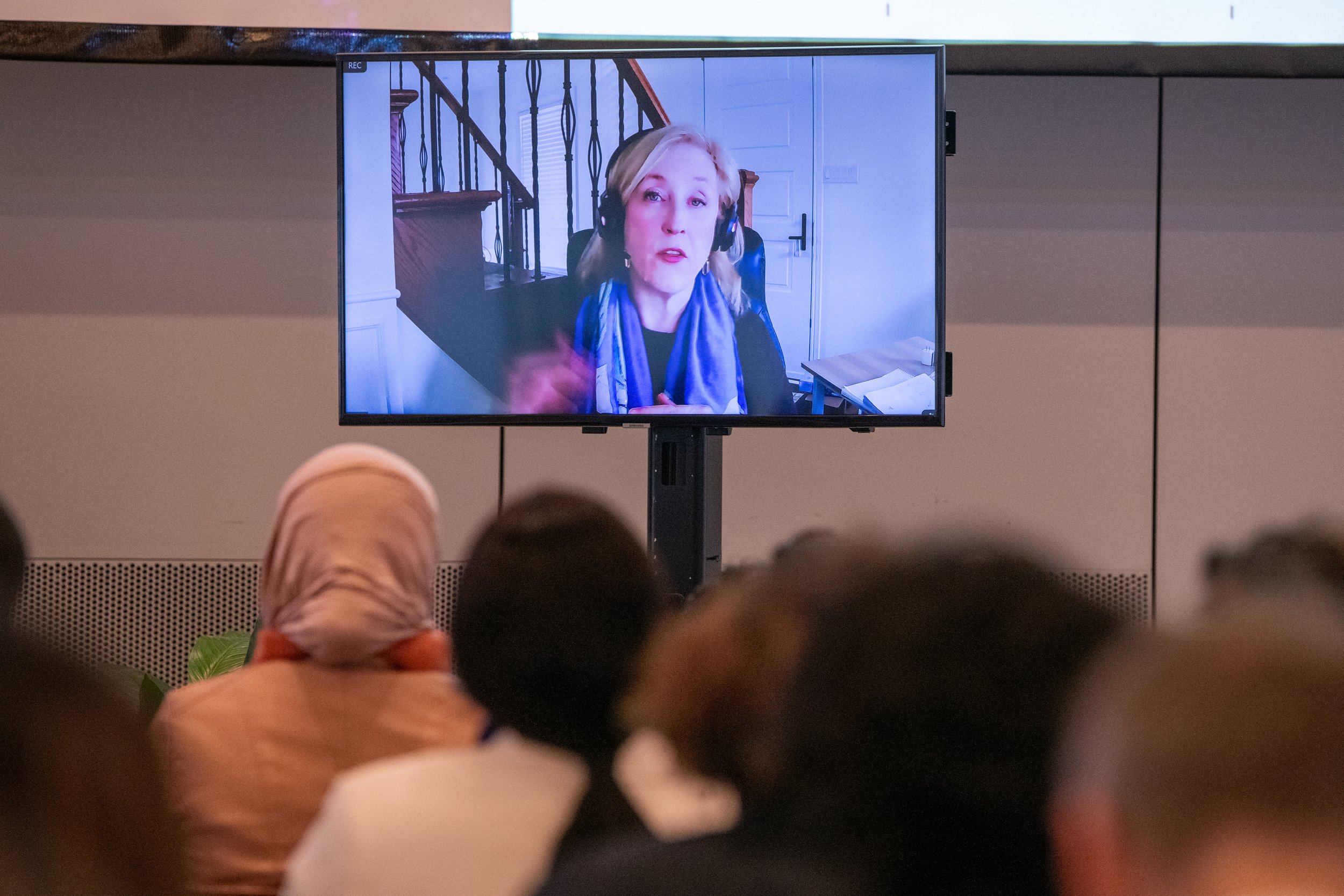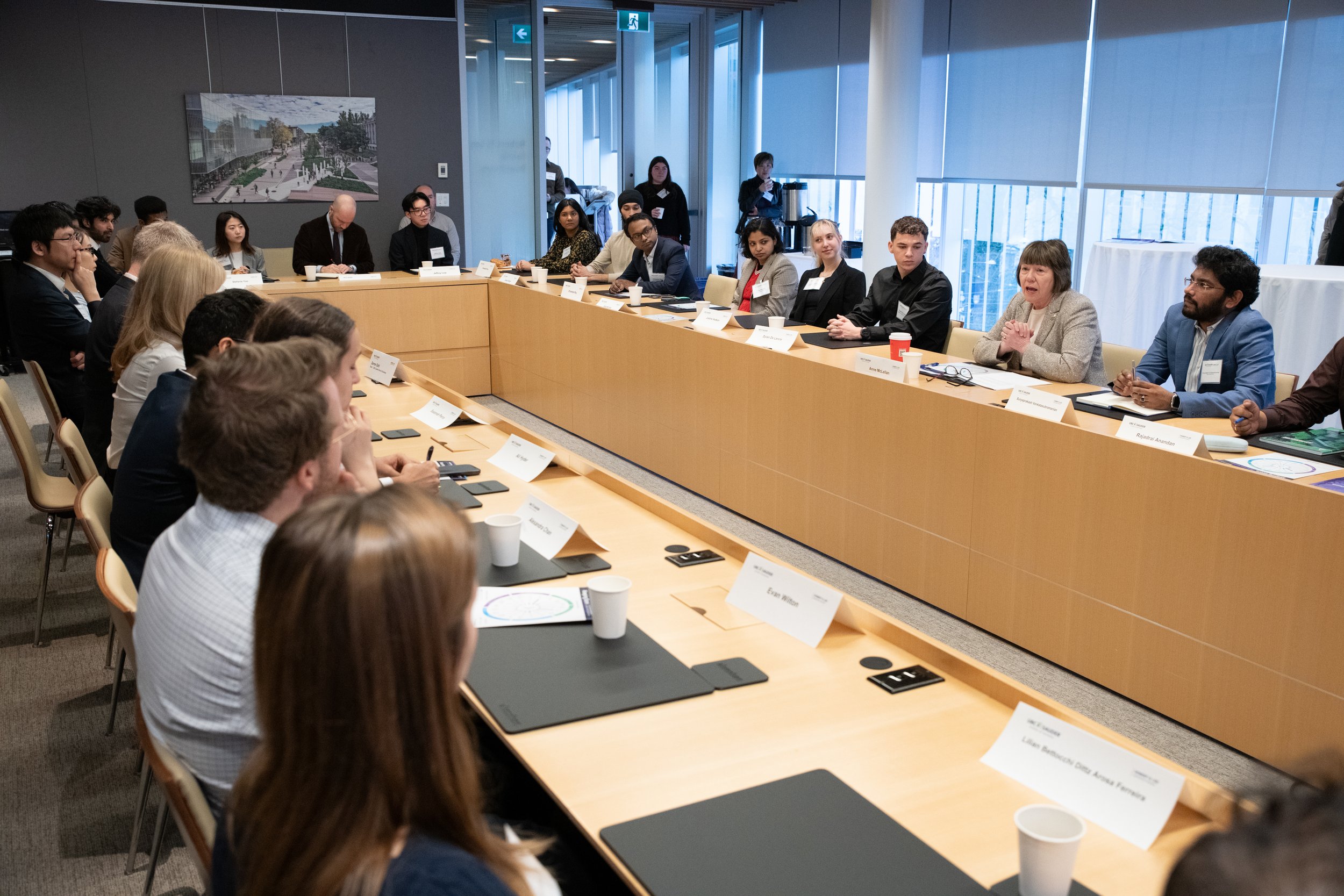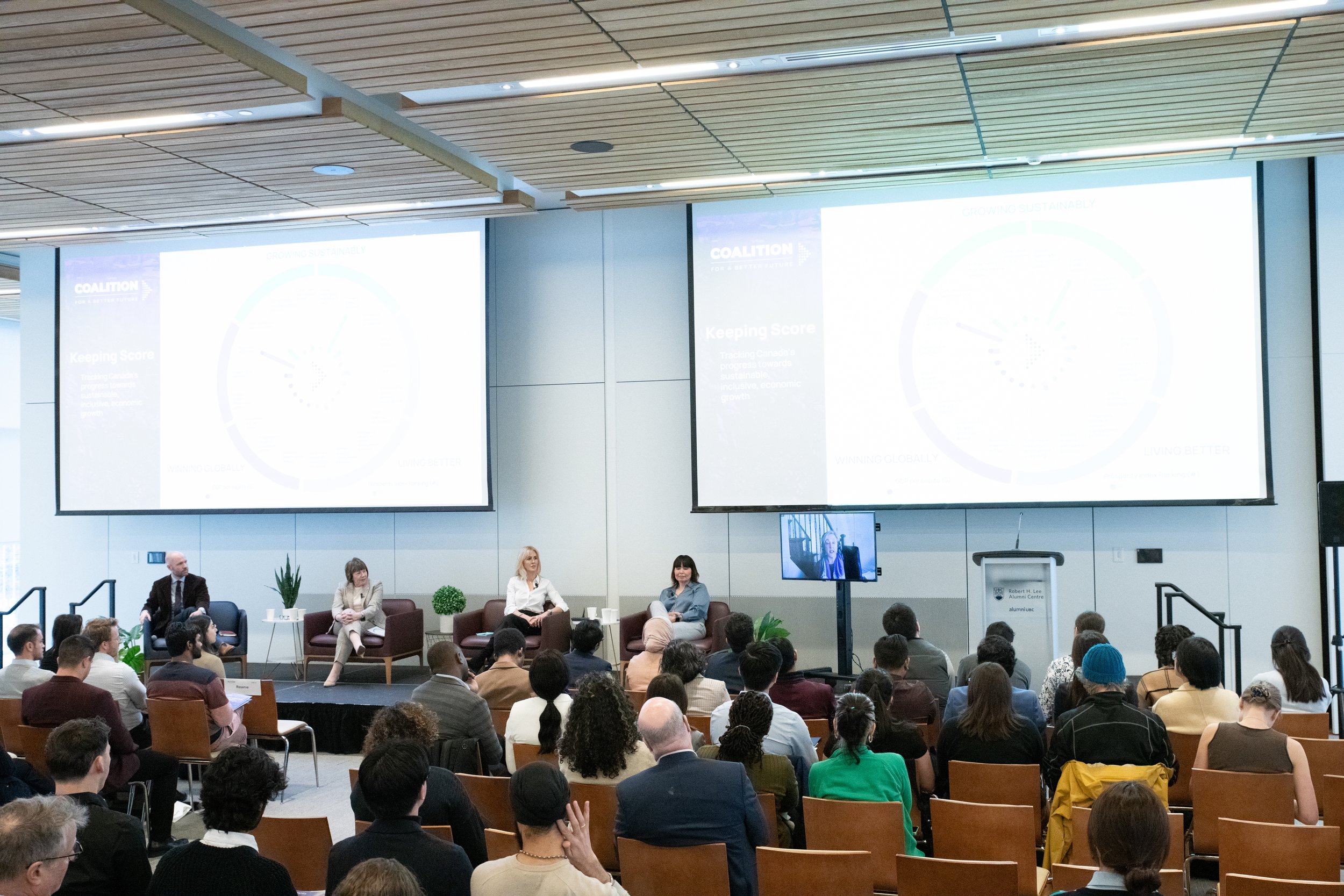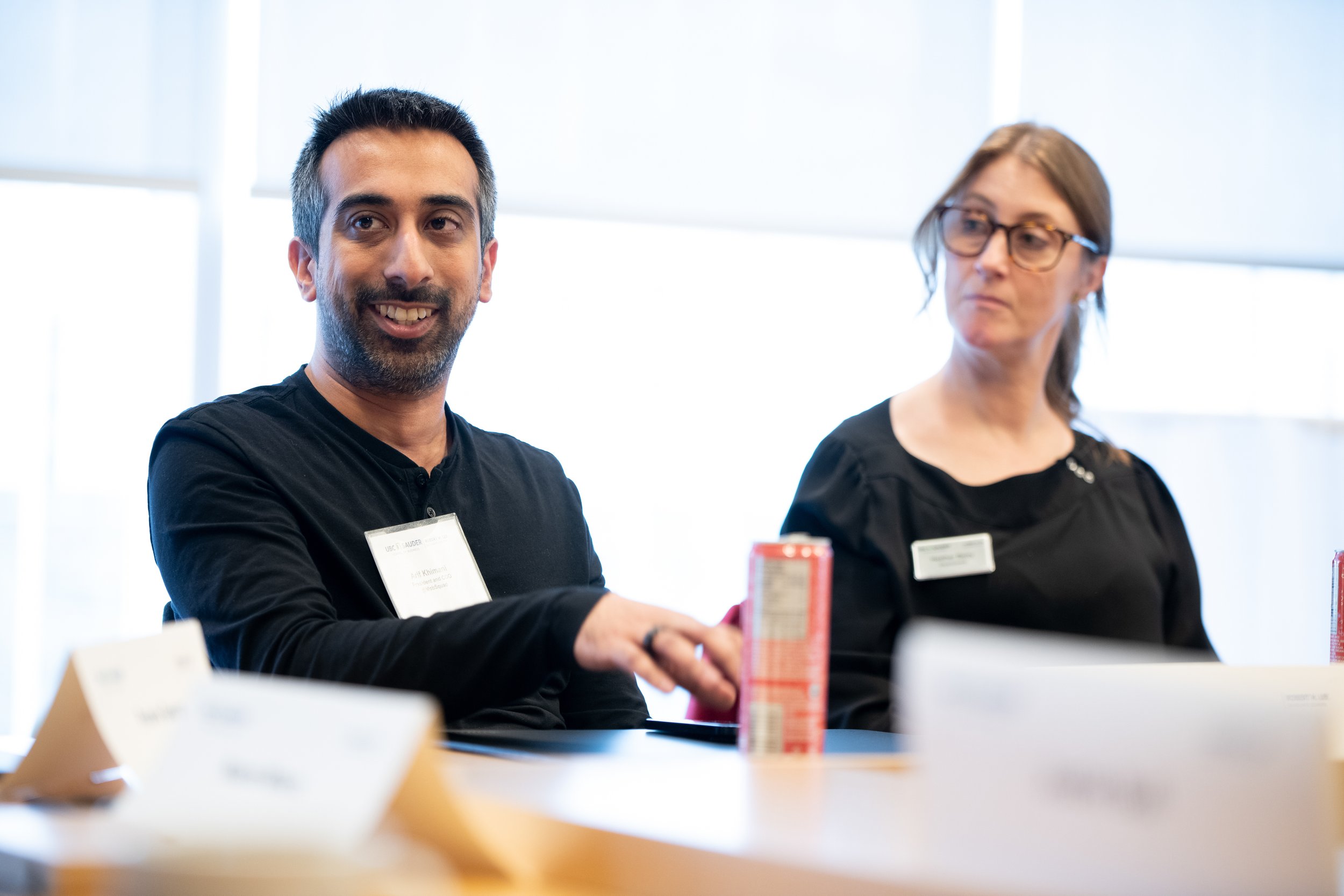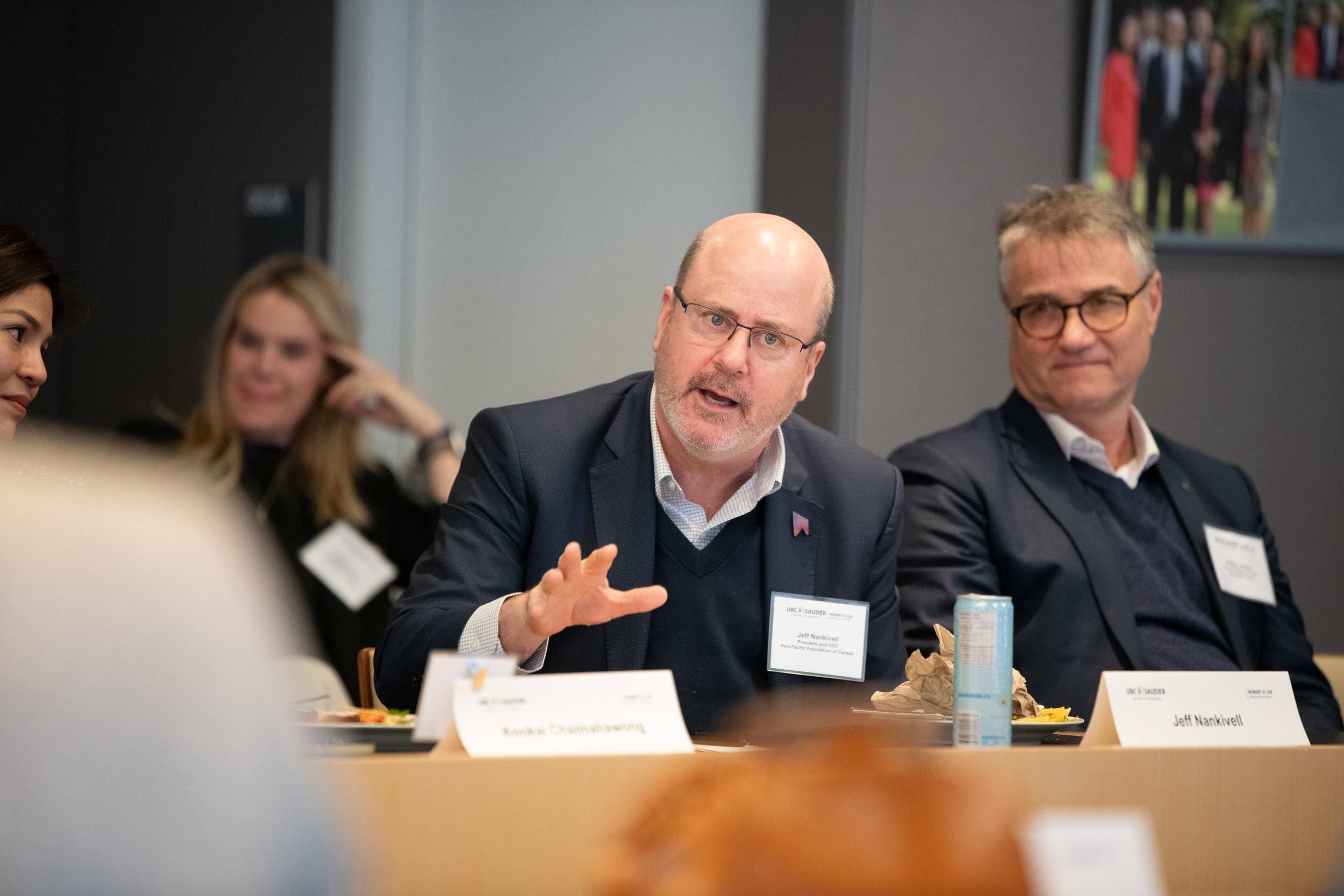“Exploding the paradigm”— how intentional inclusion is effecting transformative change across Canada
In today's swiftly changing landscape of policy making and business decision making, embracing an inclusive approach serves as a powerful force for sparking collaboration, nurturing critical thinking, shaping forward-thinking solutions and driving significant change.
This message resonated strongly during the recent Coalition Campus Tour, which stopped at the University of British Columbia’s Sauder School of Business in Vancouver.
Supported by Shell Canada, the tour featured Coalition for a Better Future co-chairs Lisa Raitt and Anne McLellan, accompanied by Chief Counsellor Crystal Smith of Haisla Nation and Susannah Pierce, President and Country Chair of Shell Canada.
The thought-provoking and inspirational conversation underscored the Coalition’s dedication to bridging ideological differences and embracing diverse perspectives—including those of women, Indigenous communities and youth.
By actively involving individuals from various backgrounds, experiences and viewpoints, governments and organizations can leverage a wealth of untapped insights and ideas—all with a goal of building a more economically prosperous nation.
Seeing and creating more opportunities for Canada’s women leaders
One vital Scorecard metric revolves around the presence of women in leadership roles. In this all-women panel discussion, talk turned to the diverse challenges faced by women across different domains.
Speaking from her own experience, Smith noted she had seen a resurgence of women in leadership roles, particularly in terms of Indigenous women spearheading community initiatives like the LNG Canada Project and Cedar LNG. She praised the recent move towards more inclusive decision making.
“A lot of our customs or traditions follow our mothers, and this will always be the backbone of our culture,” she said. “It's absolutely inspiring to see and attend meetings where we're talking about social aspects and environmental impacts, and the entire group are women. They have our communities seven generations out in their minds as they're sitting around the table discussing exactly what the issues are, what the impacts are, and how we mitigate them.”
Raitt echoed Smith's perspective on drawing inspiration from Indigenous teachings that prioritize considering the welfare of future generations. She also reflected on her diverse career spanning multiple fields, highlighting the importance of bolstering female representation in traditionally male-dominated sectors—citing her own current industry as an example.
It's absolutely inspiring to see and attend meetings where we're talking about social aspects and environmental impacts, and the entire group are women. They have our communities seven generations out in their minds as they're sitting around the table discussing exactly what the issues are, what the impacts are, and how we mitigate them.
Chief Counsellor Crystal Smith of Haisla Nation
“Investment banking has a very, very low percentage of women in it, which is a surprise for me, because quite frankly it's lucrative work and is all based on building relationships. And women create and build and maintain really great relationships. The issue, I think, is pipeline,” she said.
“What I've noticed is that when you have more women—when you get that critical mass—then things change. We have to make sure more women are seeing these careers as something that's possible for them. And the more women that we see get to these top positions, I think you'll see more being attracted into the pipeline.”
Raitt also highlighted the equal opportunities available to women in federal government.
“I know that people say that politics is a terrible place for women, and it has been, and you're subjected to a lot of scrutiny all the time,” she said. “But in Parliament's House of Commons, you are equal, your pay is equal, your title is equal, who you represent are equal. And as a result, you're all on the same footing.”
Harnessing intent for a more inclusive Canada
The conversation also focussed on the importance of deliberate and purposeful action.
“Change does not happen by accident — you have to be intentional,” said McLellan, citing examples of what all panellists are doing to drive meaningful change and tackle systemic issues.
Smith discussed the negative impacts of past projects on Indigenous lands and culture, as well as her evolution from advocating for inclusion to now leading discussions. She credited partners like Pierce and Shell for their current collaborative efforts in project development.
Change does not happen by accident — you have to be intentional.
Anne McLellan, co-chair, Coalition for a Better Future
“I became a part of our leadership at such a time where we were fighting to be at the table, fighting to be a part of economic growth in our territory. And I saw that transition from being at the table to leading those tables,” she said. “We wanted our culture to be represented at those tables. Susannah and her team came in and said: ‘It’s most important that we build relationships, that we find out what's most important to them.’ And it was not easy. There are many, many difficult conversations that our leadership teams had to come to a compromise.”
Pierce shared her thoughts on an organization’s responsibility to consider government regulations as a baseline, and also to proactively seek ways to consistently enhance practices.
“Very often, you're on the ground here in the communities … and you can actually see that maybe there are ways you can be better and do better. Part of our role as organizations is to actually say, ‘Well, we're seeing these sorts of impacts, maybe we can do things differently in addition to regulation.’ To a large extent, we don't even think about regulations in consultations with First Nations. It's the right thing to do, and you shouldn’t have to be regulated to do it. So as an organization, because we're so involved in communities and the environment, and as a member of society, we actually do have a role to say, ‘Well, we could do something better,’ and to step into that space.”
Pierce also elaborated on the challenges and opportunities of intentionally engaging communities in projects involving Indigenous partnerships.
“I think what holds people and organizations back when they’re not familiar with Indigenous communities is as simple as ‘fear of the unknown.’ But the opposite of fear is faith, in the sense that I'm going to open myself up to this conversation with an open mind and heart. As you begin to bond, you begin to build relationships and partnerships that actually enable things to move forward more effectively,” she said.
“It’s not just about how we can generate returns. It’s also about enabling shared value to society. That's one of the principles I have as a leader.”
To a large extent, we don't even think about regulations in consultations with First Nations. It's the right thing to do, and you shouldn’t have to be regulated to do it.
Susannah Pierce, Shell Canada President and Country Chair, Vice President Emerging Energy Solutions
Strategic vision and youth input essential to confronting Canada’s housing crisis
During a discussion about access to affordable housing in Canada, moderator Justin Bull, Academic Director, at Sauder’s Centre for Climate and Business Solutions, said younger generations’ concerns are more acute than their parents. He asked for the panel's thoughts on Canada's capacity to address housing needs issue in future.
Raitt expressed optimism and stressed the need for bipartisan collaboration and strategic, long-term policy planning to tackle the housing crisis effectively. She cautioned against decision makers opting for quick fixes, emphasizing the significance of sustainable housing policies in reducing greenhouse gas emissions.
“We know we must build 5.3 million homes to deal with the deficit we have now, but if we were to build them all by 2030 under the current building codes in this country, we would absolutely blow our GHG emissions cap without a question. And then, we would have to look at other sectors to reduce even further to hit the goal for the country,” she said. “So that's why when I look at policymaking in this area, I look at it with a little bit of concern, hoping that they get the long-term pieces in place that are correct.”
McLellan suggested Canadians begin taking on a mindset beyond the traditional concept of housing.
“I want to say something controversial to young people: maybe we need to rethink housing entirely,” she said. “Let's not think about, ‘Oh, we should have housing the way our parents did.’ Rather, let's think about what kind of housing we need and how it fits into the larger question of the quality of life we would like to have.”
Rather than focus on “NIMBYism” and property value concerns, McLellan encouraged younger Canadians to envision and advocate for a more contemporary understanding of what housing should encompass.
“Young people have to drive the conversation and say ‘You Boomers have had a certain quality of life, and you’ve lived life in a certain way but hey, this is MY life.’ YOU have the power to explode the paradigm.”
Getting Canada’s “economic growth” right
Throughout the discussion, the panellists emphasized the importance of prioritizing the right kind of economic growth during the discussion.
“Economic growth matters, but it's got to be the right economic growth,” said McLellan. “We can't leave people behind anymore. We can't leave geographic regions of our country behind. It has to be inclusive, and it has to be sustainable.”
McLellan then shifted the conversation towards the Scorecard initiative, which aims to track 21 key metrics by 2030 related to improving the lives of Canadians, fostering a greener economy, and enhancing our global competitiveness.
“We believe if we hit our targets for each one of these metrics, we will be one of the most inclusive and sustainable economies in the world, growing at a pace that ensures a quality of life and joy that all of us would like to expect,” she said.
Photos from the Campus Tour
